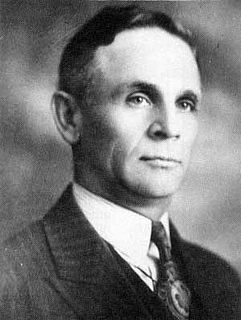Charles Braithwaite (1850 – June 9, 1910) was a Manitoba politician and agrarian leader. From 1891 to 1897, he was the leader of the province's Patrons of Industry.

Manitoba is a province at the longitudinal centre of Canada. It is often considered one of the three prairie provinces and is Canada's fifth-most populous province with its estimated 1.3 million people. Manitoba covers 649,950 square kilometres (250,900 sq mi) with a widely varied landscape, stretching from the northern oceanic coastline to the southern border with the United States. The province is bordered by the provinces of Ontario to the east and Saskatchewan to the west, the territories of Nunavut to the north, and Northwest Territories to the northwest, and the U.S. states of North Dakota and Minnesota to the south.
The Patrons of Industry in Manitoba was an extension of a farmers' organization operating in Ontario and the United States in the 1880s and 1890s. The Patrons lobbied extensively and became politically active, running provincial and federal candidates.
Braithwaite was born in Folston, England. A farmer's son with little formal education, he left England for Canada in the 1870s, initially living in Durham, Ontario but moving to Manitoba in 1881. After shifting between cities and jobs for a few years, he settled as a farmer in Portage la Prairie in 1883.

England is a country that is part of the United Kingdom. It shares land borders with Wales to the west and Scotland to the north-northwest. The Irish Sea lies west of England and the Celtic Sea lies to the southwest. England is separated from continental Europe by the North Sea to the east and the English Channel to the south. The country covers five-eighths of the island of Great Britain, which lies in the North Atlantic, and includes over 100 smaller islands, such as the Isles of Scilly and the Isle of Wight.

Canada is a country in the northern part of North America. Its ten provinces and three territories extend from the Atlantic to the Pacific and northward into the Arctic Ocean, covering 9.98 million square kilometres, making it the world's second-largest country by total area. Canada's southern border with the United States is the world's longest bi-national land border. Its capital is Ottawa, and its three largest metropolitan areas are Toronto, Montreal, and Vancouver. As a whole, Canada is sparsely populated, the majority of its land area being dominated by forest and tundra. Consequently, its population is highly urbanized, with over 80 percent of its inhabitants concentrated in large and medium-sized cities, many near the southern border. Canada's climate varies widely across its vast area, ranging from arctic weather in the north, to hot summers in the southern regions, with four distinct seasons.

Durham is a community in the municipality of West Grey, Grey County, Ontario, Canada. Durham is located near the base of the Bruce Peninsula.
In 1891, Braithwaite joined the Farmers' Institute, an educational and lobbying group representing the concerns of farmers. He also joined a Patrons of Industry local in the spring of the same year. A powerful orator, Braithwaite was elected Grand President of the Manitoba Patrons at their first provincial convention in November, and held this position until January 1897.
The Patrons of Industry were originally an agrarian fraternal organization and discussion forum operating throughout the United States and Canada. In Ontario and Manitoba, they followed in the tradition of earlier agrarian groups by opposing the national policy of John A. Macdonald's Conservative government. Under the national policy, Manitoba farmers were required to pay high prices for equipment while receiving relatively low prices for their goods. Braithwaite was able to lead a populist movement in opposition to this policy, using the slogan "Manitoba for Manitobans" to promote his organization's goals.

The United States of America (USA), commonly known as the United States or America, is a country composed of 50 states, a federal district, five major self-governing territories, and various possessions. At 3.8 million square miles, the United States is the world's third or fourth largest country by total area and is slightly smaller than the entire continent of Europe's 3.9 million square miles. With a population of over 327 million people, the U.S. is the third most populous country. The capital is Washington, D.C., and the largest city by population is New York City. Forty-eight states and the capital's federal district are contiguous in North America between Canada and Mexico. The State of Alaska is in the northwest corner of North America, bordered by Canada to the east and across the Bering Strait from Russia to the west. The State of Hawaii is an archipelago in the mid-Pacific Ocean. The U.S. territories are scattered about the Pacific Ocean and the Caribbean Sea, stretching across nine official time zones. The extremely diverse geography, climate, and wildlife of the United States make it one of the world's 17 megadiverse countries.

Sir John Alexander Macdonald was the first prime minister of Canada. The dominant figure of Canadian Confederation, he had a political career which spanned almost half a century.
During Braithwaite's first three years as Patron leader, the organization focused on agrarian cooperation via the Patrons Commercial Union. This union failed due to poor management, after its members refused to contribute enough materials to attract commercial interests.
The Manitoba Patrons turned to direct political action in 1894. Originally a Liberal, Braithwaite encouraged the party to run its own candidates in provincial and federal elections to protest existing political corruption. Braithwaite himself conducted a successful tour of the province to spread this message. By the end of the year, membership in the Manitoba Patrons had grown to about 5000, and the party had nominated candidates in all but two constituencies in anticipation of the next provincial election. In the summer of 1894, Patron candidate John Forsyth defeated Conservative leader John Andrew Davidson in a by-election for the Manitoba legislature. (Forsyth subsequently violated party policy by using a railway pass as a privilege of elected office, and was expelled from the Patrons in October 1895).

The Liberal Party of Canada is the oldest and longest-serving governing political party in Canada. The Liberals form the current government, elected in 2015. The party has dominated federal politics for much of Canada's history, holding power for almost 69 years in the 20th century—more than any other party in a developed country—and as a result, it is sometimes referred to as Canada's "natural governing party".
The Progressive Conservative Party of Manitoba is a right-of-centre political party in Manitoba, Canada and the only right-leaning party in the province. It is currently the governing party in the Legislative Assembly of Manitoba, after winning a substantial majority in the 2016 provincial election.

John Andrew Davidson was a Manitoba politician. He was briefly the leader of Manitoba's Conservative parliamentary caucus in 1894, and later served as a cabinet minister in the governments of Hugh John Macdonald and Rodmond Roblin.
The Patrons were, however, a divided organization. Braithwaite frequently quarrelled with Henry Clay, the hardline editor of the Patrons newspaper whose intemperate comments often drove financial supporters away from the party. Clay was replaced as editor in early 1895, but other divisions subsequently surfaced. (Clay recalled the event differently - according to him, he was with the paper until the end when he signed the printing press over to the print-shop employees to pay their wages owing.) [1]
In early 1895, Braithwaite travelled to Toronto to help create the platform of a national Patrons party, which advocated agrarian reform, prohibition and woman's suffrage. Soon after this, however, the Manitoba Patrons became divided by a local issue, the Manitoba Schools Question. Catholic Patrons became alienated from the party when it supported the government of Thomas Greenway in opposing denominational schools. The controversy also caused many Protestant farmers to rally around Greenway's Liberals, further marginalizing the Patrons. Only seven Patrons candidates contested the 1896 provincial election in Manitoba, and of these only two were elected. Braithwaite had already declared himself a candidate for federal office, and did not run provincially.
In the 1896 federal election, Braithwaite contested the riding of Macdonald on a platform of non-sectarian schools, electoral reform, agricultural interests, free trade, public utilities ownership, prohibition and universal suffrage. His campaign was marginalized by a close national race between the Conservatives and Liberals, and was dealt a further blow when Charles Tupper's Conservatives unveiled a platform that promoted many of the Patrons goals. Braithwaite finished third in his riding, and stepped down as Grand President in January 1897. The Patrons effectively ceased to exist as a viable political group in Manitoba after this time, although many of their policies would later resurface in the Progressive Party of Canada.
Braithwaite lost his farm to fire and did not have the funds to re-build as he had been operating a farm beyond his ability anyway. [2] Braithwaite, who had led the party since 1891, stepped down as party leader in January 1897, and the party effectively ceased to exist after this time.
He accepted office as Manitoba's provincial weed inspector, serving from 1897 to 1901. He returned to his farm after this, and in 1904 moved to Chilliwack, British Columbia. He later became the first postmaster of the small community of Camp Slough, and died in 1910.






